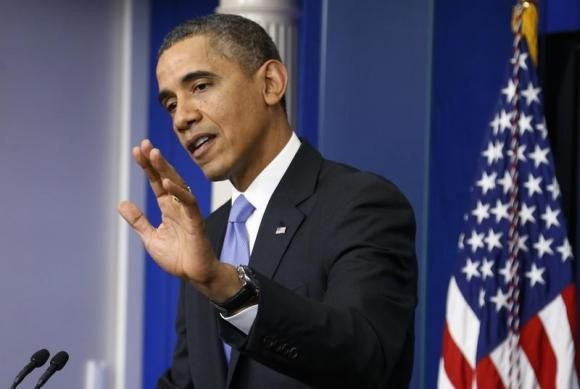Obama To Call On Congressional Limits To NSA On Anniversary Of Eisenhower's Farewell Address

President Barack Obama is set to deliver a speech on the National Security Agency’s digital surveillance program on Friday, and many expect that the commander-in-chief will call for limits on the agency’s ability to collect American citizens' phone records.
Last year, ex-intelligence contractor Edward Snowden revealed, among other disclosures on espionage by the U.S. government, that the NSA collected metadata on phone calls made by millions of Americans and citizens of American-allied nations like Britain and Germany. Since the news broke, countless Americans and foreign diplomats have called for an end to the programs, and while it seems unlikely that Obama will stop them completely, most believe that he will ask Congress to place some limits on the type of data the NSA can collect.
According to the Washington Post, Obama’s speech is still being written, but the president plans to deliver it during a visit to the Justice Department on Friday. Insiders expect that he will criticize the overwhelming scope of data collection and argue that the agency’s surveillance should be more targeted.
“Congress has a responsibility to establish limits on government surveillance, so it’s entirely appropriate that Congress weigh in on the phone records program,’’ Jeremy Bash, a former CIA and Pentagon chief of staff, told the Washington Post.
Last year, a White House advisory panel said the phone metadata collected by the NSA should instead be held by private telecom companies, but according to Bloomberg, Obama is expected to leave that data in the NSA’s hands.
Obama’s speech will coincide with the 53rd anniversary of President Dwight Eisenhower’s famous farewell address, where he warned against the dangers of the "military-industrial complex." White House aides have denied that Obama intentionally scheduled his speech on the anniversary of Eisenhower’s, but there are bound to be similarities between the two.
Eisenhower warned against the growing influence of a "military-industrial complex" that would prop up an unending war against Soviet communism for its own profit, a situation that many could see as analogous to the struggle against Islamic extremism and to the profits it brings to a vast network of contractor companies working for U.S. intelligence.
“In the councils of government, we must guard against the acquisition of unwarranted influence, whether sought or unsought, by the military-industrial complex,” Eisenhower warned. “The potential for the disastrous rise of misplaced power exists and will persist.”
© Copyright IBTimes 2025. All rights reserved.






















